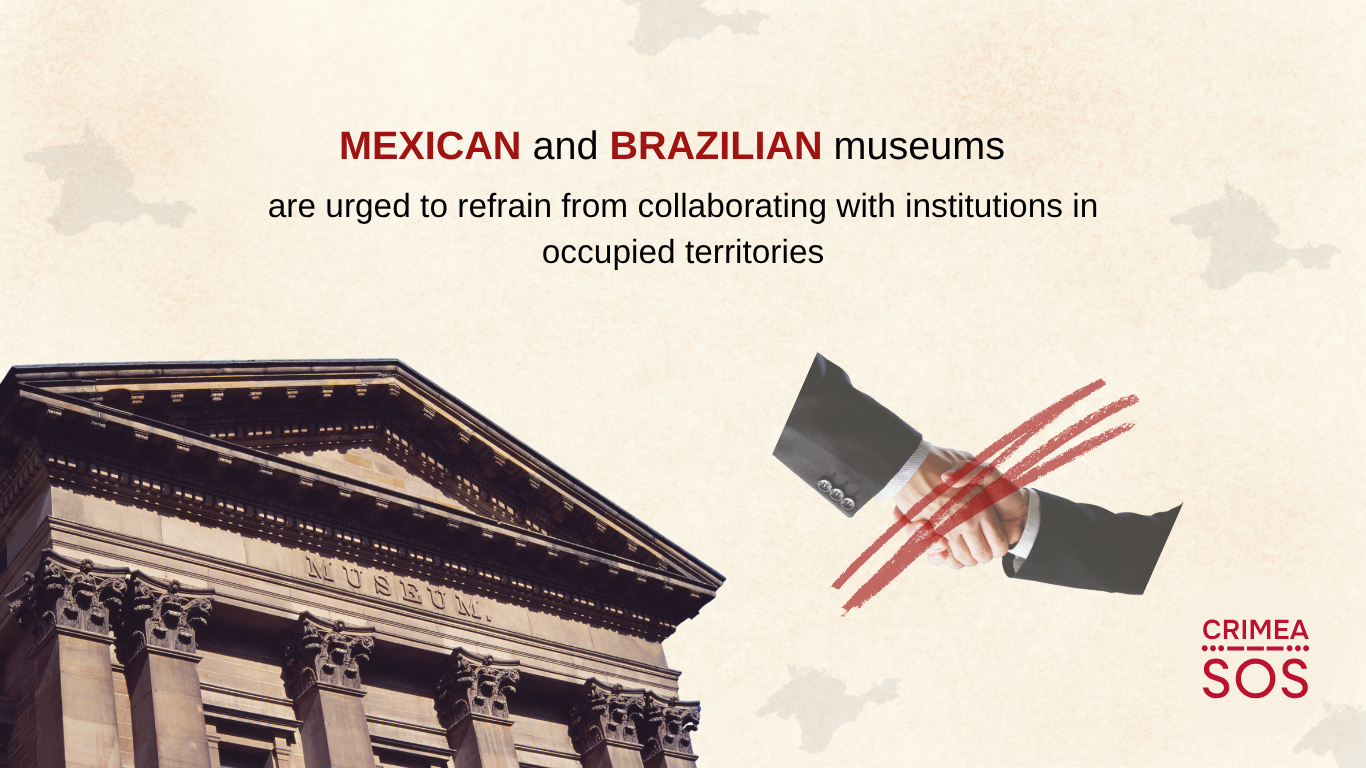Mexican and Brazilian museums are urged to refrain from collaborating with institutions in occupied territories
23 / 07 / 2025
Eleven Ukrainian and international organizations have appealed to museums in Mexico and Brazil not to legitimize the occupation of Crimea. The reason for the appeal was the memorandums of cooperation between the Lasar Segall Art Museum (São Paulo, Brazil) and the Anahuacalli Museum (Mexico City, Mexico) and the so-called “Russian Gallery of Arts” – a museum that was founded on the temporarily occupied territory of the Crimean peninsula, in the city of Sevastopol.
Representatives of Ukrainian civil society expressed deep concern that such cooperation may pose a direct threat to compliance with international law, in particular the principles of sovereignty, territorial integrity, and non-recognition of illegal changes to state borders. At the same time, the appeals included statements by high-ranking officials of Mexico and Brazil about supporting the sovereignty and territorial integrity of Ukraine.
In addition, representatives of NGOs brought to the attention of foreign museums that since the occupation of Crimea in 2014, the Russian Federation has been actively implementing its own cultural policy in the occupied territory, aimed at its ideological transformation, beneficial only to the occupying party, rather than at preserving heritage. Museum institutions in the occupied territory are actively conducting illegal destructive archaeological excavations at over 1,100 sites, including Tauric Chersonesos, a UNESCO World Heritage Site. About 14 million valuable items were seized, a significant portion of which, including paintings by Ukrainian artists, were moved to museums in the Russian Federation, where they are used to broadcast narratives that justify the occupation and deny the cultural identity of Ukraine and the Crimean Tatar people.
In view of this, the appeal states that any form of international cooperation with such institutions – even indirect one – may be regarded as a violation of the principle of due diligence in international cooperation and pose a risk of unwittingly contributing to the policy of occupation, violating the rights to cultural identity, and distorting historical truth. Civil society is asking museums to refrain from interacting with institutions in the occupied territory out of “solidarity with international law enforcement, affected communities, and those trying to preserve cultural heritage in times of war.”
Human Rights Center ZMINA
Crimean Human Rights Group
Crimean process
Regional Center for Human Rights (RCHR)
Media Initiative for Human Rights (MIHR)
International Partnership for Human Rights (IPHR)
NGO “Association of Relatives of Kremlin Political Prisoners”
Human Rights House Crimea
Ukrainian Legal Advisory Group
Educational Human Rights House Chernihiv
NGO “CrimeaSOS”